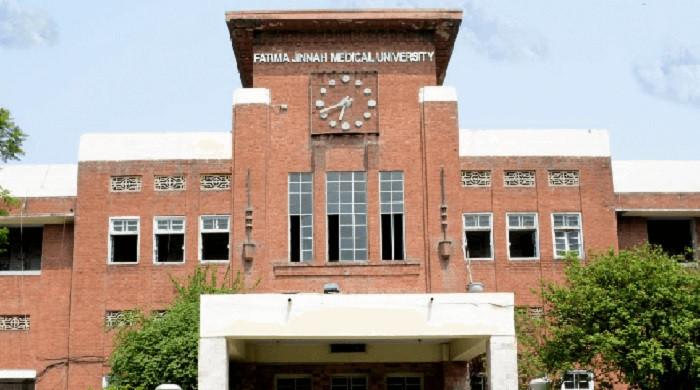COVID-19: Despite low risk, UK to place Pakistan on its travel ban's 'red list'
MPs have questioned the rationale behind the decision because Pakistan has a lower rate of infection as compared to European countries
April 05, 2021

The English government is due to add Pakistan to its "red list" of travel ban countries at 4am on Friday, April 9 — a decision that has caused concern and confusion among opposition MPs.
Government advice states that only residents of the UK or British and Irish nationals will be able to enter the UK if they have been to or travelled from Pakistan or the other 38 countries on the list. Those allowed in will have to pay to quarantine for 10 days in a government-approved hotel.
The rationale behind this controversial decision was “to protect the country against new variants of coronavirus,” according to the Department for Transport — the variants that came from South Africa (SA) and Brazil, in particular.
Labour MPs, such as Tanmanjeet Singh Dhesi and Naz Shah, have questioned the rationale behind this decision because Pakistan has a lower rate of infection as compared to countries in Europe which are also experiencing the third wave of the pandemic.
According to the Reuters' COVID-19 tracker, in the past week, there have been 15 people infected per 100,000 in Pakistan, compared to 411 in France and 139 in Germany. These figures call into question the reason for the addition of Pakistan to the red list and have led many to wonder what the true impetus was.
Prime Minister Boris Johnson has toyed with the idea of putting France on the red list, but no such move has yet been made. Johnson stated at the Liaison Committee that the decision rested on considering the risk from France in terms of the virus but also how restrictions in travel would cause disruption to trade.
The government, which bases its decisions on the red list on risk assessments produced by the Joint Biosecurity Centre, has suggested that fewer cases of the SA variant have come from Europe compared to other parts of the world. However, some experts have previously warned of the potential risk to the UK from the SA variant in European countries.
Professor Neil Ferguson of Imperial College London had warned the UK in mid-March of the rising cases of the SA variant in France, and thus that the UK ought to be careful on decisions relating to trade. Furthermore, the World Health Organisation’s Weekly Epidemiological Update, as of March 16, 2021, showed that only one of the three variants of concern had been reported in Pakistan whereas France had reported all three.
This cumulative evidence certainly seems to support the suggestion that the red list is based on arbitrary reasoning. The government should either ban all travel to effectively prevent the transmission of variants, as advised by SAGE in January 2021, or it should apply a consistent policy to determine travel bans on specific countries. Neither of these is currently happening while countries that have higher infection rates and a greater risk of transmission of variants than Pakistan are not placed on the red list.
In terms of the bigger picture, the Commission on Race and Ethnic Disparities has recently published a report that concluded that institutional racism does not exist in the UK which prevents ethnic minorities from achieving the same as white people. This has caused outrage and may lead some to feel that their experiences of racism have been invalidated.
The addition of Pakistan to the red list, which seemingly flies in the face of reason, may indeed be a timely symptom of the very institutional racism that apparently does not exist.
The writer, now working as a researcher and analyst, will soon be undertaking a PhD. She tweets @MaryFloraHunter











